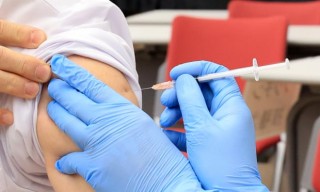Search
▼ Britons Left Stranded By Japan’s Slow Vaccine Rollout
- Category:Other
Japan has vaccinated less than 1% of the population, leaving many expatriates frustrated London is not helping them.
Japan’s troubled vaccination rollout has left British residents feeling “trapped” in their adopted home, preventing them visiting parents and children they haven’t seen since before the coronavirus pandemic.
Since its rollout began in mid-February, Japan has vaccinated less than 1% of its population, compared with 2.9% in South Korea and at least 40% in the US and Britain. Supply issues, red tape and poor planning have prompted warnings that it could take another year to vaccinate the country’s 110 million over-15s.
Sean O’Neill, the vice-president of a global IT company in Tokyo, said he had hoped to return to the UK at the end of this month to combine vaccinations with a family visit, but the cost, including quarantine and Covid-19 tests, had forced him to abandon the idea.
“Why should I have to consider spending £4,000-£5,000 for a trip back to the UK to get the vaccine, plus the same again 10 to 12 weeks later to get the second dose? I would happily pay, say, £500 to get the vaccine delivered to me over here in Japan. I’m sure others would, too,” said O’Neill, who has not seen his children in Australia and the UK for more than a year.
British expats were united in their praise for Japan’s overall response to the pandemic, which has kept cases and deaths to a fraction of those in the UK.But the pace of immunisation is causing frustration and heartache, with some of those interviewed by the Guardian saying they could not afford the time and money needed to quarantine on both legs of the journey between Japan and Britain.
Wealthier expatriates are reportedly flying to other countries in the region to receive their jabs. “I can confirm having heard of executives going to their home countries for vaccines,” Michael Mroczek, president of the European Business Council in Japan, told Reuters. But he added that quarantine requirements had kept numbers low.
Marc Wesseling, a long-term foreign resident, is among those who could not wait. “I love [Japan] and I wish them all the best,” said Wesseling, the co-founder of an ad agency in Tokyo who this month flew to Singapore, where his company has an office, in part to get vaccinated so that he could safely visit his parents in the Netherlands.
“I think a lot of people are frustrated, especially when you want to have the Olympics and everything,” he said from his quarantine accommodation in Singapore. “Come on guys. Make it happen. The whole world is doing it. Why wait?”
Not all Britons living in countries with slow vaccination rollouts – including Japan, South Korea, Australia and New Zealand – face a long wait, however.
The British government is offering vaccines to diplomatic staff and their families worldwide, according to the Foreign, Commonwealth and Development Office. “We are committed to ensuring all overseas personnel for whom the government has a duty of care have access to a vaccine in line with the UK’s domestic rollout, including all staff working at the British embassy in Tokyo,” an FCDO spokesperson told the Guardian.
The spokesperson, who declined to give details of the extent or timing of vaccinations for “security reasons”, added: “As a residence-based system, the NHS does not provide healthcare (including vaccinations) outside the UK. Wherever possible British nationals should aim to be vaccinated where they live.”
Graham Burt, who has three young children, is among those who sympathise with the government’s stance.
“I don’t believe the British government’s duty of care extends as far as providing the vaccine,” said Burt, a Tokyo-based recruiter for tech startups. “Japan is a first-world country with a good health service.”
Burt, who is keen to get home to see his mother, added: “If the UK government has vaccines to spare, then there are plenty of people and places ahead of some British expats in the queue. I’m disappointed that the rollout has been slow in Japan, but the general response to the pandemic from the population, both local and expat, has been really good, so I feel safe.”
His sentiments were echoed by Rob Williams, an independent financial adviser, who said expatriates should instead be “lobbying the Japanese government to get the vaccines done. Lives could be saved if Japan expedited its vaccination rollout, which is unacceptably glacial.”
Sheila Curley, a teacher living in Tokyo, wondered why the British embassy had not stepped in to help British citizens, noting that it had distributed iodine tablets – which can protect the thyroid from radiation – in the wake of the March 2011 Fukushima nuclear meltdown.
“It feels a bit unfair that they are not looking after us now, especially in view of how Japan has been so slow to roll out the vaccine,” said Curley, who last visited the UK in September to see her terminally ill sister.
Others spoke of the “torture” of not knowing when they would be able to return to the UK to see their families, particularly if more airlines start demanding proof of vaccination.
“The vaccine rollout in Japan is affecting not only my personal mental health but also that of my friends and family here in Japan in a very negative way,” said Sally Diffor, who has lived in Tokyo for four years.
“In July it will be two years since my family last went to the UK, and our general feeling is that of being trapped and isolated. It’s causing us to reflect on whether we would be happier returning permanently to the UK, as many of the families I know are contemplating.
“The British government has a duty of care and obligation to the entire British community. We should not be abandoned and neglected.”
- April 22, 2021
- Comment (0)
- Trackback(0)


